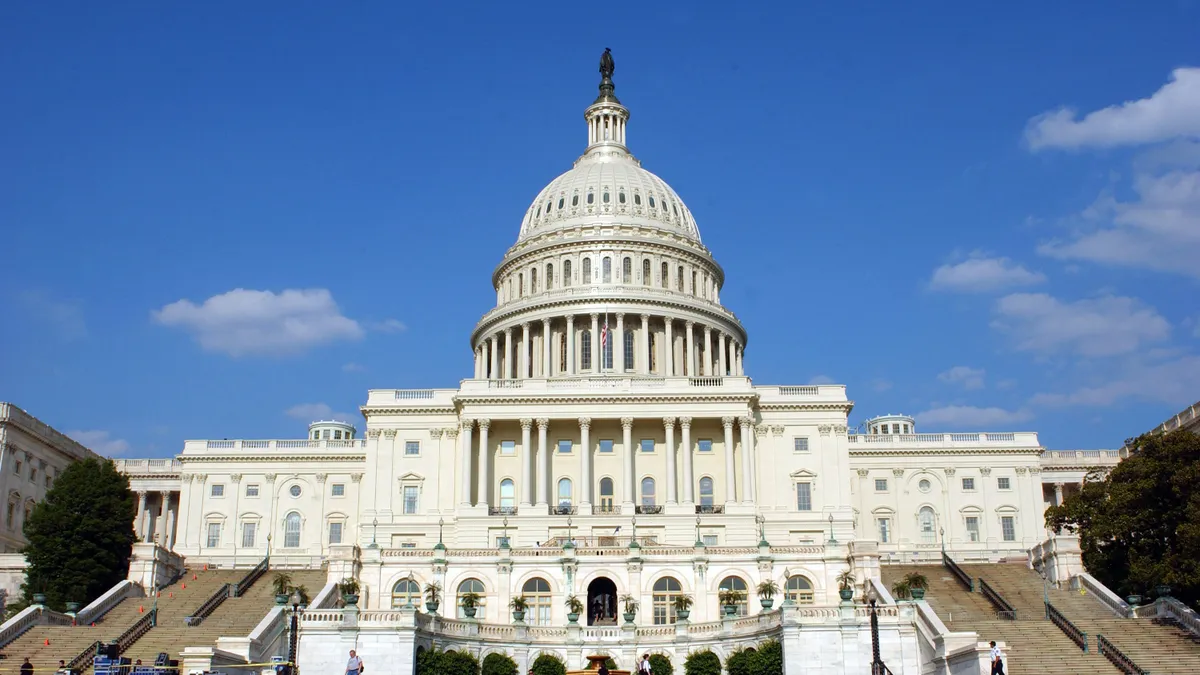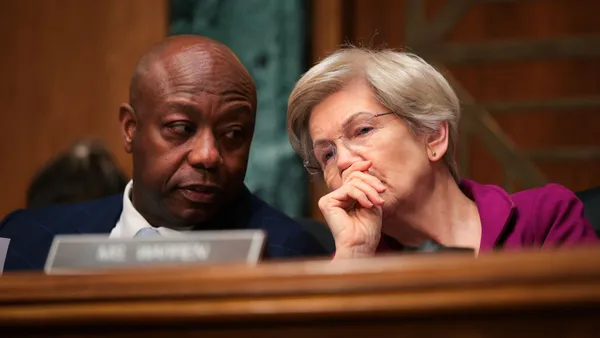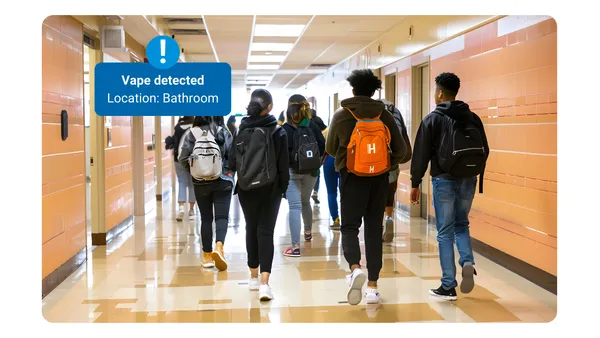Dive Brief:
- Lawmakers from two congressional committees overseeing education raised concerns during separate hearings this week about a wide range of topics, including COVID-19 safety protocols in schools, use of K-12 emergency relief funding, and learning recovery during the pandemic.
- Regarding school safety measures, lawmakers said funding from the Elementary and Secondary School Emergency Relief Fund has been particularly helpful in providing personal protective equipment and ventilation upgrades, but some voiced concerns about masking policies as well as shortages of school-based COVID-19 test kits.
- U.S. Secretary of Education Miguel Cardona on Thursday told the Senate Committee on Health, Education, Labor and Pensions while nearly 100% of the nation’s schools are currently open for full-time, in-person learning, there are still many challenges, such as teacher shortages, reengaging students who have disconnected from school, and strengthening services for students from underserved communities. “The education system we had before March 2020 is not the goal,” Cardona said. “We can and we must do better.”
Dive Insight:
Lawmakers at both hearings and from both political parties agreed schools need to make full time, in-person learning a priority. They also wanted to ensure ESSER’s $122 billion in American Rescue Plan funding was supporting critical K-12 needs.
During the House Early Childhood, Elementary and Secondary Education Subcommittee hearing Wednesday, Ranking Member Burgess Owens of Utah, a Republican, criticized the ARP for not requiring in-person learning as a condition of funding. “The American Rescue Plan did not deliver on its promise to help schools safely reopen this fall,” he said. “If it had, we wouldn't be sitting here in this hearing today.”
Nevada’s Clark County School District Superintendent Jesus Jara, however, told the subcommittee ESSER funding was essential in providing remote learning for the district’s 304,000 students in the early months of the pandemic and for reopening campuses in March 2021.
“The American Rescue Plan COVID-released funds enabled the Clark County Public Schools to prioritize the needs, address obstacles, reopen safely to support students’ social and emotional learning and academic needs,” Jara said.
The Department of Education has a data dashboard showing each state’s ESSER award amount and spending levels, Cardona told the Senate HELP committee. Details of spending priorities are included in state ESSER plans.
Denise Forte, interim CEO of The Education Trust, told the House subcommittee relief funding is vital in addressing longstanding educational inequities, students’ physical health and social-emotional and academic wellbeing. For learning recovery, Forte recommended schools use targeted, intensive tutoring and expanded learning opportunities.
“State and local leaders should be planning for how ARP funds and other resources can yield lasting structural change,” Forte said.
Discussions of school safety protocols caused the most debate in both hearings, with lawmakers in both parties accusing one another of politicizing the wearing of masks in schools.
“Let's be clear, there is nothing honorable about putting kids and educators and their families at risk to score political points, and the risk is real,” said HELP Chair Patty Murray of Washington, a Democrat, referring to several Republican-led states that have prohibited school districts from enforcing school mask mandates.
HELP Ranking Member Richard Burr of North Carolina, a Republican, said it was “inappropriate” for the Department of Education to open civil rights investigations into seven states’ bans on mask mandates.
“The theory behind it is unwise, and the potential for abuse of our bipartisan civil rights laws causes grave harm to all of us,” Burr said.
Lawmakers on both aisles agreed schools need better access to COVID-19 testing so they can quickly identify students who test positive and better manage outbreaks.
Health and Human Services Secretary Xavier Becerra told the HELP committee there is sufficient testing capacity across the nation, but demand, due to the delta variant, has made distribution more difficult. HHS is working with manufacturers to increase production of test kits and is also working with states to coordinate access to tests, he said.
“We're trying to let the states help us determine where the tests should go rather than let just the people in any part of the state, or any part of the region of the country, dictate where those tests should go so we make sure there's always sufficient supply for every state,” Becerra said.
President Joe Biden signed a bill late Thursday night to sustain the 2021 fiscal year spending levels into early December. In a statement, Biden praised the bipartisan effort for the stopgap measure that will help the country continue to respond to the pandemic, but said much work remains to pass a longer-term funding bill.














